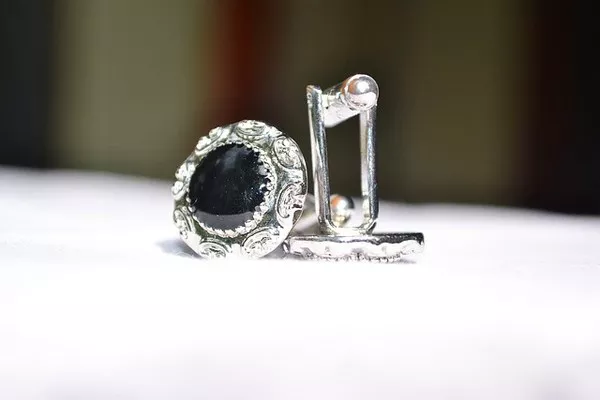Silver, often referred to as the “poor man’s gold,” is a popular investment asset and a valuable commodity with a rich history. Many investors, both new and seasoned, are drawn to silver for its affordability compared to gold and its potential as a hedge against inflation. However, when it comes to selling silver, a common question arises: can you sell silver at spot price? This article explores the intricacies of selling silver at spot price, factors influencing the sale, and strategies to maximize returns.
Understanding Spot Price
Before diving into the nuances of selling silver at spot price, it’s essential to understand what spot price means. The spot price of silver is the current market price at which silver can be bought or sold for immediate delivery. This price fluctuates constantly based on supply and demand dynamics, geopolitical events, and broader economic conditions.
Spot prices are quoted in various currencies and are commonly used as a benchmark for silver transactions. They are determined by the commodities markets, with major exchanges like the London Metal Exchange (LME) and the COMEX futures market playing significant roles in setting these prices.
Can You Sell Silver at Spot Price?
Selling silver at spot price is theoretically possible but practically challenging. Here’s why:
Market Fluctuations: The spot price of silver changes frequently due to market volatility. While you may find a buyer willing to pay spot price at one moment, the price could shift by the time the transaction is completed.
Dealer Markup: Most transactions involving silver are conducted through dealers or brokers. These intermediaries typically add a markup to the spot price to cover their costs and generate a profit. The markup can vary depending on the dealer, the type of silver product, and the quantity being sold.
Transaction Costs: Selling silver often involves additional costs such as shipping, insurance, and transaction fees. These costs can reduce the effective price you receive compared to the spot price.
Condition and Form of Silver: The form and condition of your silver can influence the price you receive. For instance, silver bullion bars or coins in pristine condition might attract higher premiums compared to silver scrap or jewelry.
Volume: Selling large quantities of silver might increase your chances of negotiating a deal closer to the spot price. Dealers might be more inclined to offer a better price for bulk transactions.
Strategies for Selling Silver at or Near Spot Price
While selling silver at spot price can be difficult, there are several strategies you can employ to maximize your chances of achieving a favorable outcome:
1. Direct Sale to Other Investors
One way to increase your chances of selling silver at or near spot price is by directly negotiating with other investors. This approach eliminates the middleman and potentially avoids dealer markups. Online forums, investment groups, or local meet-ups can provide platforms for such transactions.
2. Find a Reputable Dealer
If selling directly is not feasible, finding a reputable dealer who offers competitive prices and low markups can make a difference. Research dealers, compare their terms, and look for customer reviews to ensure you’re working with someone trustworthy.
3. Leverage Online Platforms
Online platforms and marketplaces dedicated to precious metals can provide a venue for selling silver. Websites like eBay, bullion exchanges, or precious metals trading platforms might offer opportunities to sell closer to the spot price. Ensure you understand the fees associated with these platforms before proceeding.
4. Timing the Market
Keeping an eye on market trends and timing your sale during periods of stable or rising silver prices can help you achieve a better price. Market timing requires a good understanding of the factors influencing silver prices, so staying informed is crucial.
5. Sell in Bulk
If you have a substantial amount of silver to sell, consider selling in bulk. Dealers and investors might be more willing to negotiate a better price for larger quantities. Bulk sales can also reduce the relative impact of transaction costs.
6. Consider Alternative Selling Methods
Auction houses or consignment shops that specialize in precious metals might offer another avenue for selling silver. These venues often attract serious buyers who might be willing to pay a price closer to the spot price.
Understanding Market Dynamics
To successfully sell silver at or near spot price, it’s important to understand the broader market dynamics. Here are a few key factors to consider:
1. Supply and Demand
The balance of supply and demand for silver plays a significant role in determining its price. High demand or reduced supply can push prices up, while oversupply or decreased demand can lead to lower prices.
2. Economic Indicators
Economic indicators such as inflation rates, interest rates, and geopolitical events can influence silver prices. For instance, during times of economic uncertainty, investors might flock to silver as a safe-haven asset, driving up prices.
3. Silver’s Industrial Demand
Silver has numerous industrial applications, including in electronics, solar panels, and medical devices. Changes in industrial demand can affect silver prices. Staying informed about industry trends can provide insights into future price movements.
See Also The Rate of Silver Per Gram
Conclusion
Selling silver at spot price is a desirable but challenging goal. The spot price represents the theoretical value of silver, but actual selling prices are influenced by factors such as dealer markups, transaction costs, and market conditions. By employing strategies like selling directly to other investors, finding reputable dealers, and leveraging online platforms, you can increase your chances of achieving a sale price closer to the spot price.
Ultimately, understanding the market dynamics and being strategic in your approach will help you navigate the complexities of selling silver and make informed decisions to maximize your returns. Whether you’re an investor looking to liquidate your holdings or simply exploring the market, being knowledgeable and prepared will serve you well in the ever-evolving world of precious metals.


